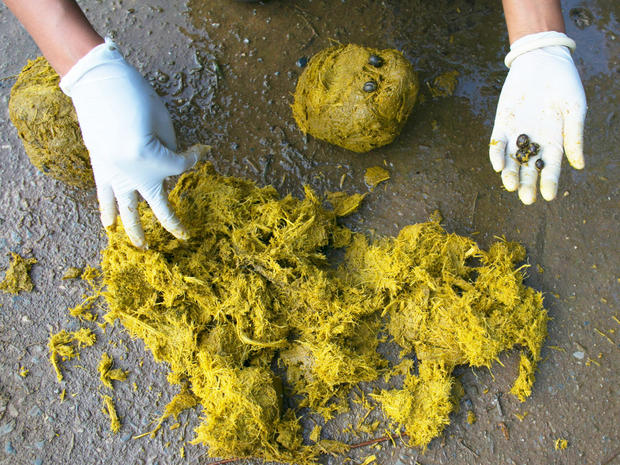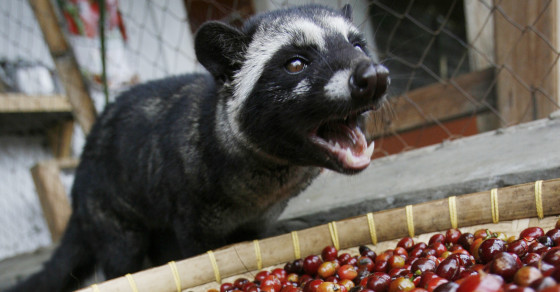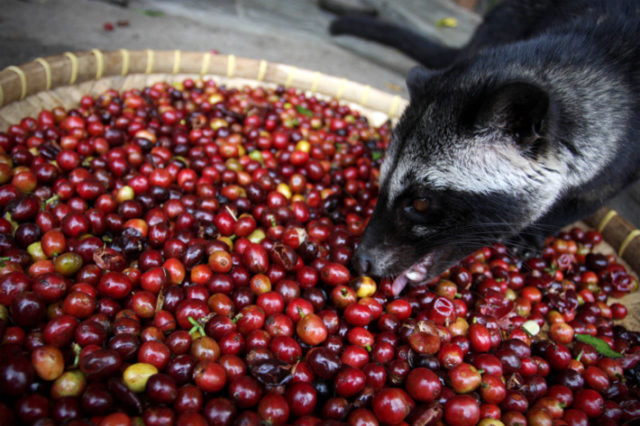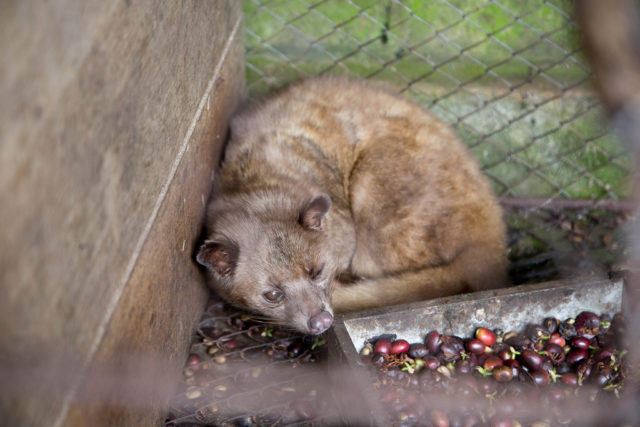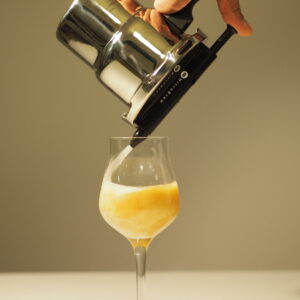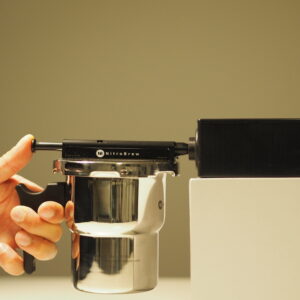Kopi Luwak and some more stories of animal coffee
Timon Kaufmann•Beans n Booze
Turning shit into gold is something a lot of creative entrepreneurs tried to manage. And most of the time they failed. In case of speciality coffee though, this actually worked out quite successfully! Because of the growing interest on high quality coffee the idea of coffee, shifts from getting awake, to enjoying the aromas. Therefore, the quality and special variations of the little bean becomes a truly popular topic. This is where Kopi Luwak and the animal coffee kicks in!
Kopi Luwak, the king animal coffee
One of the most famous and unarguable most bizarre versions of speciality coffee is the so called Kopi Luwak from Indonesia. A coffee that gets processed by traveling through the digestive tract of a special wild cat species. With market prices up to €1.200 per kilogram this sounds like quite a profitable business. And where is profitable business there are most likely imitators who don’t really care about the details. This is why this kind of coffee is part of a very controversial held debate. Next to Kopi Luwak there are numerous of different styles of “animal coffees”. Instead of the so-called civet cat there are different animals used for production. But the process stays more or less the same.
The animals are fed with coffee cherries whereupon they start their journey through the inside of the animal. On this journey the pulp gets decomposed and the indigestible kernel gets a very special enzymatic treatment. So they say. The effect of this process never really been proved and taste-wise a debatable territory. Has the kernel reached the back of the animal and escaped it on its foreseen way, some hardworking hands collect it, wash it and finally roast it.
There are also civet coffees from Ethiopia. More than this you can get a Kopi Muncak from Indian deer, Brazilian Jacu from chickens, elephant coffee, also known as Black Ivory, Kaldi from goats, Bat Crop from, you guess it, bats, Monkey Chew from monkeys and most likely from every other animal that enjoys nibble from the coffee bushes from time to time.
The story behind animal coffee
With time the reputation of animal coffee became better and better due it’s allegedly smooth and aromatic taste and almost nonexistent bitterness. Originally this coffee was collected in the wilderness. This means it takes a lot of time and labor to get enough stuff to throw it into a coffee roaster. In combination with the great reputation, this is the reason for the astronomic prices this product can reach.
You don’t have to be a genius to understand that those prices will bring some businessman into the game that will try to optimize those processes to get the most money of it. To do so they simply start to collect the cats instead of the beans.
Apart from the fact that civet cats can’t be domesticated and therefore suffer in captivity, the omnivores will sustain from deficiency syndromes up to death because of only eating coffee cherries.
One of the undeniable reasons this coffee has such a good reputation is justified in the fact that the free-living cats only eat ripe, tasty and undamaged fruits. This is the main reason that makes this high-quality coffee beans. But this is a luxury the cats can’t enjoy in captivity.
Meanwhile this coffee hype is reason for Kopi Luwak sold to tourist is most likely the work of elephants, pigs and other farm animals. Simply, because they have a bigger “output”…
The sad truth of animal coffee and Kopi Luwak rarity
At the end of the game you will need about 30 kilograms of cherries to get one kilogram of coffee beans, as not every bean will make it through the process without damages. Which gives one more reason why it is impossible to cover the growing demand of Kopi Luwak by traditional methods.
It’s hard to proof the authenticity of Kopi Luwak. But if you want to try a coup of this speciality anyway, you should be careful where you buy it. Statistics say that 80% of Kopi Luwak on the trade market is either stretched with other beans or even never have seen a civet cat. As we finally know this coffee is a rarity. And one well known characteristic of rarities is that they are rare. So, you should get very skeptical if you can find offers for far below €60 per 100 grams or if available in big amounts.
Animal coffee: yes or no?
Despite all the critics there are positive examples as well. With a little bit of responsible research you can find certified sellers. Most of them work together with native people and tribes who collect the coffees for them and getting payed fairly in return.
Another respectable representative of this industry is the already mentioned Black Ivory. Producer of this coffee is the Tai “Golden Triangle Asian Elephant Foundation” which takes care about all needs of elephants. Next to a fair salary for the rangers, 8% of the revenue goes to the Anantara Golden Triangle Camp that takes care about food and medical supplies of the animals.
Meanwhile there are also producers that imitate the enzymatically process without one single animal involved. So if you are willing to spend a little money on it, you can also enjoy this coffee without regrets.
Because of the growing demand of high quality coffee in general, coffee producers worldwide started to improve and enhance their methods and processes to deliver high end coffee. Combined with the brewing skills of modern baristi there will be nothing left to be desired in case of taste and aroma. So let the thought be allowed if there are still reasonable reasons why there should be something like animal coffee.
You can’t argue about taste. But if someone has the opportunity to enjoy a great cup of coffee without supporting a business that is mainly based on animal cruelty you definitely should argue about it.



